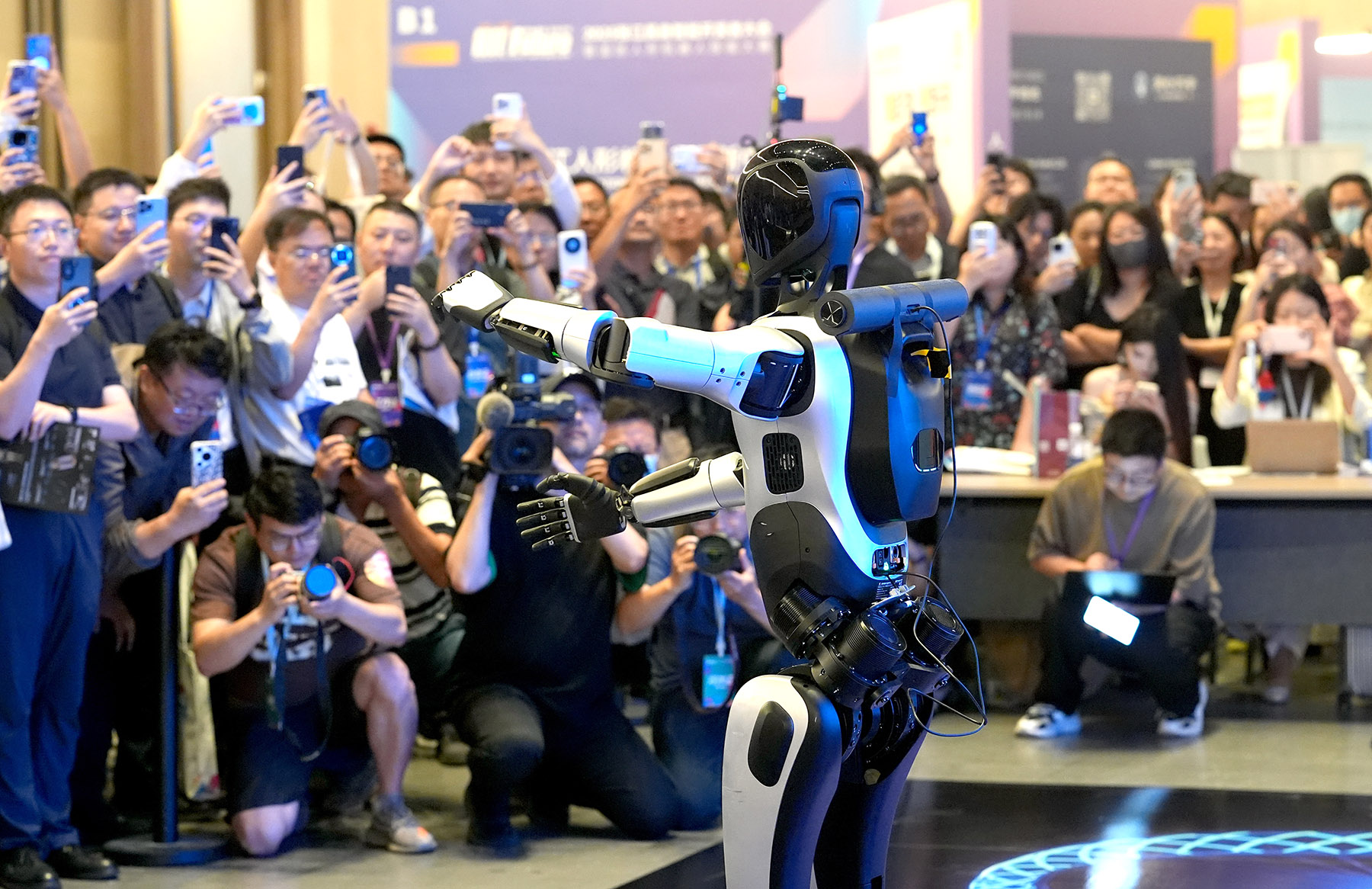
More than 60 teams are participating in the 2025 International Humanoid Robotics Skills Competition that kicked off in Shanghai on Thursday.
The teams will contest on 28 scenarios, such as lifting boxes, garbage disposal, loading and unloading of industrial parts, retrieving items from refrigerators and product scanning.
The competition is themed "glorious labor", since generating economic profits and achieving applications in multiple scenarios are the major focus areas of the fast-developing robotics industry in Shanghai, said Zhong Junhao, secretary-general of the Shanghai AI Industry Association.
"In other words, robots should hopefully do more jobs, whether it is household chores or jobs in factories," he said.
READ MORE: China’s Honor developing humanoid robots in $10b AI plan
Zhang Lin, head of a student society under the Student Innovation Center at Shanghai Jiao Tong University, led his team to take part in contests for car labeling, as well as loading and unloading of industrial parts.
"Car labeling requires the robot to accurately identify the inclined surfaces of the vehicle body, testing its visual positioning and flexible operational capabilities. Loading and unloading of industrial parts require the robot to align holes and make deliveries precisely, which need coordinated and dynamic stability of the robotic arms. While these are the major challenges in industrial automation, they are also the key scenarios for the application of humanoid robots," Zhang said.
According to Zhong of SAIA, robots should not be confined to set programs. They should be able to understand instructions made in natural language while being prepared with a certain level of reasoning ability.
"As long as robots can understand the language of human beings, they can play a bigger role in businesses, industries and families, especially in terms of smart manufacturing, logistics and domestic services," he said.
While humanoid robots are the ultimate goal, there should not be excessive stress on the human shape for the time being as the industry is still at the development stage, said Zhong.
Therefore, transition plans can be considered. Wheels can be integrated to facilitate the movements of robots. Where the sensor system is not perfect, there should be an intermediary solution so that a robot hand can safely and dexterously reach an object, he added.
The event was a prelude to a longer tournament running through the second half of the year. Winning teams will be eligible for another competition to be held during this year's World Artificial Intelligence Conference, which is scheduled from July 26 to 28.
The ongoing competition is part of the 2025 Zhangjiang Embodied Intelligence Developers Conference.
A mutual recognition plan for humanoid robot industry standards started on Thursday, aiming to serve the construction of humanoid robot demonstration zones in China. Five standards related to virtual and real fusion training grounds as well as simulation training data will be initially included for such recognition.
Shanghai-based Copilot Robotics Co Ltd attended the developers' conference by showcasing five of its robots. Specializing in home scenarios, the company's robots will mainly function as companions to human beings.
The first batch of such robots will enter mass production by the end of this year.
ALSO READ: Robot half-marathon puts innovations to the test
"The more robots we sell, the more user data we can collect, with which we can further improve the performance of the robots. This can be translated into repeat purchases for consumers," the company's founder, Liang Conghui, said.
OYMotion Technologies Co Ltd released four new products at the conference.
Covering the intelligent bionic hand series and the robotic dexterous hand series, the products can address needs in medical rehabilitation, force adaptation and smaller-scale applications, according to the company's founder Ni Hualiang.
According to Chen Weiwei, general manager of Zhangjiang Group, one of the organizers of the competition, Shanghai accounts for onethird of the market value of China's robotics industry.
Contact the writer at shijing@chinadaily.com.cn


